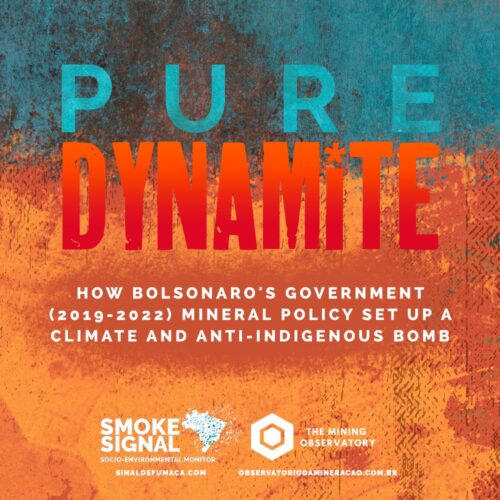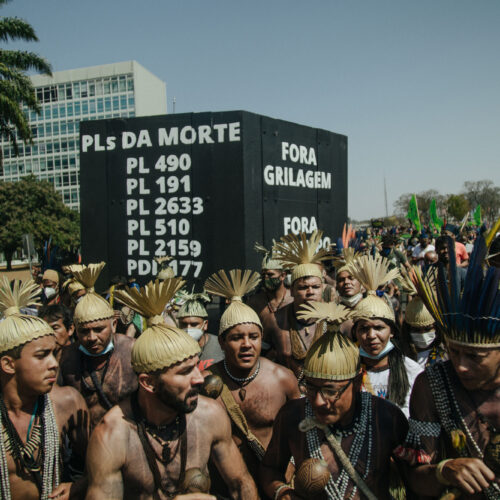27 Mar 23
Pure Dynamite: Report produced by Observatório da Mineração and Smoke Signal reviews the explosive legacy of the Bolsonaro government’s mining policy
To create memory and help elaborate on the tragedy of mineral policy under the Bolsonaro government, The Mining Observatory [Observatório da Mineração] and Smoke Signal [Sinal de Fumaça] have launched the bilingual report “Pure Dynamite: how Bolsonaro’s Government (2019-2022) Mineral Policy Set Up a Climate and Anti-Indigenous Bomb” an independent production that brings a timeline of the mineral sector and details the dismantling of regulatory bodies, rights violations, scandalous agreements and other measures adopted by the former government to satisfy the mineral market lobby in the country and the world.
In its thorough and investigative work, Observatório da Mineração closely followed the work that Bolsonaro’s government undertook at the national and international levels to dismantle public policies and sell mining and metal goods. Investigations have shown that his administration promoted legal and infralegal changes that benefited large mining companies, caused the criminal networks of illegal mining to soar, and made institutions such as the Ministry of Mines and Energy and the National Mining Agency totally subservient to vested financial interests. Smoke Signal Socio-Environmental Monitor, which has recorded facts and movements related to Brazilian socio-environmental policies over the last four years, joined Observatório da Mineração to produce this unprecedented report.
In addition to exposing the sophisticated articulations made between the mining market lobby, transnational companies and the federal government behind closed doors in the National Congress, the publication also brings a brief summary of the first measures adopted by Lula’s government and a list with 20 initial suggestions for the recovery of public governance and the reduction of negative effects of mining in the country.
Click here to read our report in english. Also available in portuguese.
Sources:
















